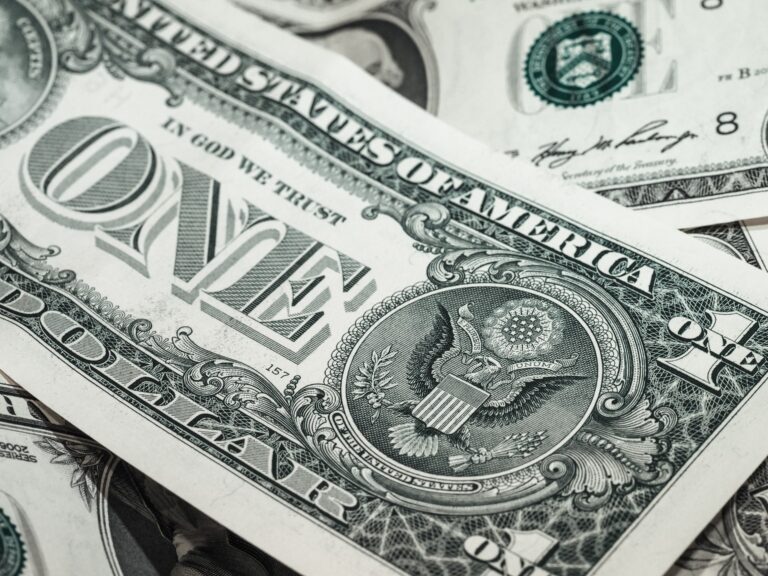
Morning Brief – Down, down, down, down, down
The chorus lyric of Flo Rida’s hit song echo the title of this market briefing. Two confessions: 1) yes I had to google the song to check 2) yes I spelled his name wrong. It might be erroneous to assume that just because the hit song was recorded in 2008 that Mr Rida was commendation on the global financial crisis and Great Recession he saw unfolding before him. But it seems more fun to do so than not, so I will.. After all, his co-star on the track (Ke$ha) even spells her name with a Dollar symbol! Coincidence?! Yeah probably.
Self-defamation and flippancy aside, the title of our budding musical FX analysts’ song was “right round”. My conviction to the belief of a sharp and deep recession followed by a period of rapid and unprecedented millennial growth mimicking a V-shape has only grown. I agree therefore with Flo Rida CFA and Ke$ha CPA, we should see valuations come right round.
Until the exogenous shock of Coronavirus the one world associated with GBP was Brexit. The most obvious feature of Brexit upon the Pound aside from a massive depreciation following the June 23rd referendum was a tight channel trade for more than three years. The range had a top (around 82.5 on a trade-weighted basis) that had been well tested and proven. It also had a firm bottom that had been reached and tested some three times in the course of post-referendum Britain at around 74 on a trade weighted basis. The average value was about 77.5 on the same scale. We have commented several times that this tight range is not sustainable and, eventually, volatility must come back into the underlying market and the Pound’s tight range broken. We also said that when the range is broken it won’t just crack, it will shatter and price action will be violent.
Following a rally at the end of 2019 following the result of the general election it looked as though the overdue range-break could have been to the upside. Unfortunately for Pound sellers and importers, the lack of a trade-deal and a stubborn PM in number 10 who was willing to leave without a deal capped Sterling’s gains in line but ultimately below the upper level. Given the above-average value of the Pound our expectation was for a correction at least towards the median and a move lower in Sterling. Well, we got it but the move was turbocharged by Coronavirus. As such we have broken the post-referendum price floor and Sterling is in free fall. See the graph below to see the Pound’s post-referendum performance and recent fall. Markets in normal times go up like an escalator. In bad times, they perform like a lift. Just in Sterling’s cash we’ve got a loose wire. Within the week, GBPEUR could well trade at 1-1.
On the desk we have been asked a lot why is Sterling taking the beating of international market’s angst at Coronavirus. Four reasons.
- Unpreparedness/Inaction
The UK government has been accused of inaction quite rightly. Despite a severe outbreak quarantine has not been enforced. Limitations on social interaction are value and not enforced. On top of that the amount spent and pledged by the UK government is pathetic in comparison with other developed European and US peers. Markets don’t like the UK government’s complacency and think it could deepen the Coronavirus crisis and ultimately the UK economy.
2. External deficit
Trust me, it isn’t just the Pound that’s taken a beating. All currencies whose underlying domestic economies have a large external deficit – i.e. they import considerably more than they export – are proving vulnerable to speculative flows. A weak current account balance can be likened to an over-leveraged debtor; in bad times their credit line is the first to be cut.
3. Brexit
With the political change that the UK was already attempting to undertake still underway and the time still ticking on a deal, there is a level of political risk that sours the taste of Sterling in investors’ mouths even further.
4. Oil
Whilst the UK may not be affected by the value of oil to the same degree as the true commodity currencies (CAD, NOK, RUB), Brent Crude (North Sea Oil) does still have an important influence on the capital flows around Great Britain. The sell-off in Crude Oil prices can still be seen to weaken Sterling slightly.

Discussion and Analysis by Charles Porter

Click Here to Subscribe to the SGM-FX Newsletter
Related Insights

Daily Brief – Gold
Gold With Gold accounting for the second highest proportion of Central Bank reserves after the USD and the mood music shifting to it assuming a greater influence on future reserves management, it is worth looking at the numbers behind that. In the 1960s, Central Banks held the highest amount historically of 38,000 tons of gold. […]

Daily Brief – US Dollar
US Dollar Markets not liking POTUS pontificating on the Federal Reserve’s interest rate policy on Wednesday, and less still on his view about the competence or otherwise of Chairman Powell. Given the past few weeks, the betting is that Powell’s time is over either being replaced or having a Trump nominee second guessing him but […]

Daily Brief – NATO
NATO This week sees the 32 member countries of NATO convening in The Hague for the annual meeting which this time unsurprisingly is going to attract rather more in the way of news coverage than it has in previous years. The ECFR or the European Council of Foreign Relations has just completed a poll of […]



 Humphrey Percy
Humphrey Percy